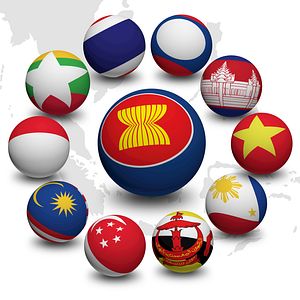Though a series of events are expected to shape Southeast Asia throughout 2016, we are also gearing up for some developments over the next few months that could heat up the regional landscape. In particular, the July 12 ruling of the Hague-based Permanent Court of Arbitration (PCA) on the South China Sea disputes, the August 7 constitutional referendum in Thailand, and the Panglong Peace Conference in Myanmar in late August are highly anticipated. Here is a closer look at these three events and what they could mean.
1. Arbitral ruling on South China Sea dispute. The International Tribunal of the Permanent Court of Arbitration is expected to release its decision on July 12 with regard to the case filed by the Philippines against the “illegal activities” of China in the South China Sea (renamed in the Philippines as West Philippine Sea). Even if China does not recognize the jurisdiction of the tribunal, any ruling on the case will certainly affect China’s relationship not just with the Philippines but also with the other claimants over the Spratly Islands. A favorable decision for the Philippines will indirectly boost the claims of other countries in Southeast Asia. It could inspire various groups to call for “Chexit” or China’s removal of its facilities in the disputed territories. Anticipating the legal victory of the Philippines, President Rodrigo Duterte suggested a dialogue with China to resolve the issue.
2. Thailand’s constitutional referendum. Two years after staging a coup, the Thai army has drafted a constitution aimed at restoring civilian rule in the country. A referendum is scheduled on August 7 to approve or reject the constitution. If there’s little information coming from Thailand-based news websites about the draft constitution, it is because the junta has outlawed any discussion that could influence the decision of Thais to vote in favor or against the proposed document. In recent weeks, the police arrested activists accused of distributing flyers about the constitution. Some pro-democracy groups believe the constitution will reinforce the role of the army instead of restoring democracy in Thailand. It’s unlikely that the referendum will ease the political crisis, which the army had originally vowed to do when it grabbed power in 2014. As Thailand faces the grim prospect of greater instability its economy might continue to suffer, which could also affect the plight of migrant workers from neighboring countries in the region.
3. Myanmar’s peace and reconciliation process. More than 60 years after Myanmar gained independence, several ethnic minorities continue to wage war against the national government. A nationwide ceasefire was approved last year but not all armed groups joined the initiative. The landslide election victory of the party of democracy icon Aung San Suu Kyi has raised hopes of finally achieving peace and reconciliation in the country. In support of this aim, the new government is proposing to hold a national gathering next month inspired by the 1947 peace conference organized by Suu Kyi’s father. The 21st Century Panglong Conference hopes to unite all ethnic minorities and convince the armed groups to support the peace and reconciliation agenda of the government. There are some challenges to overcome such as the rise of radical Buddhism, anti-Muslim sentiment among ultra-nationalists, and the continuing influential role of the army which has ruled the country from 1962 until early this year. But the success of the Panglong Conference could sustain Myanmar’s transition to modern democracy while implementing extensive economic reforms. Myanmar’s peace process can also serve as a model for other countries like the Philippines where local wars and secessionist movements exist.

































